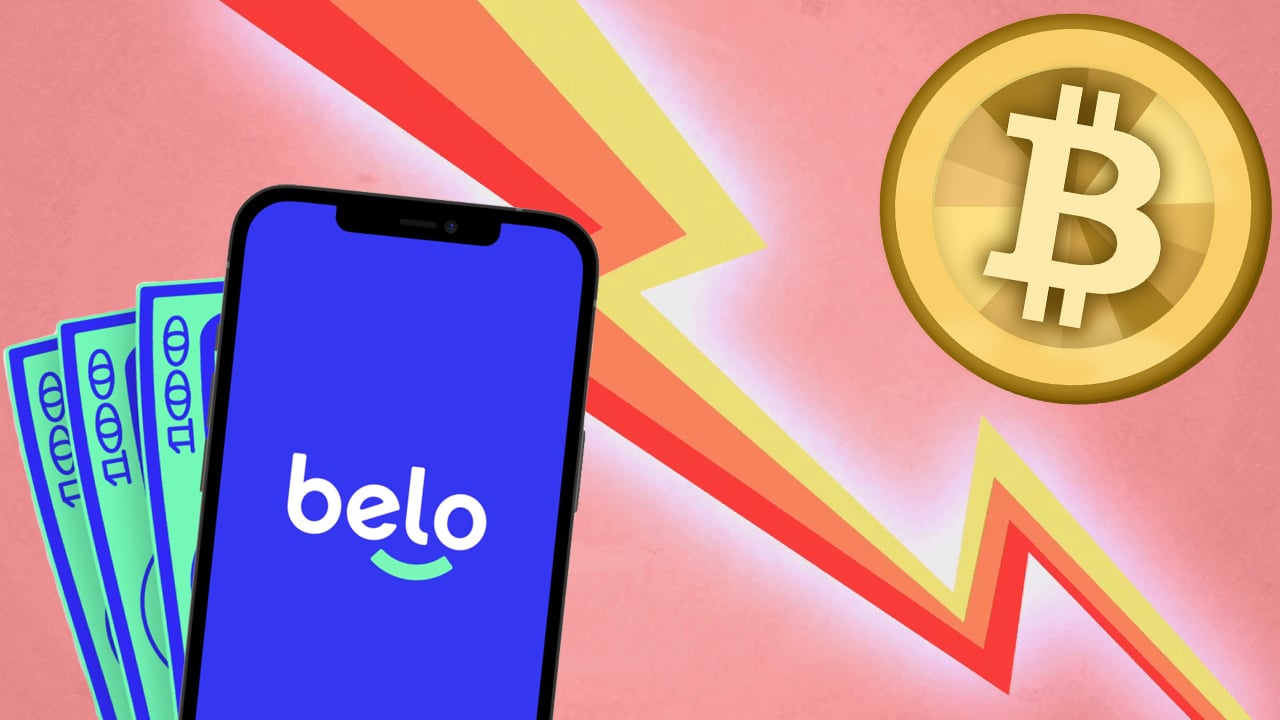 File transfer service giant Wetransfer announced Monday it is collaborating with blockchain platform Minima to offer a non-fungible token (NFT) minting product in March. Wetransfer’s announcement details that users leveraging the Minima cooperative will be able to mint NFTs from a mobile device or computer. Wetransfer and Minima Partnership Aims to Bring NFT Minting to […]
File transfer service giant Wetransfer announced Monday it is collaborating with blockchain platform Minima to offer a non-fungible token (NFT) minting product in March. Wetransfer’s announcement details that users leveraging the Minima cooperative will be able to mint NFTs from a mobile device or computer. Wetransfer and Minima Partnership Aims to Bring NFT Minting to […] The agency overseeing the financial sector in Germany has issued a warning about the ‘Godfather’ malware attacking banking and crypto applications. Hundreds of these platforms have been targeted, the regulator noted, including those operating in the Bundesrepublik. Financial Authorities Advise Germans How to Protect Their Mobile Apps From Malware The Federal Financial Supervisory Authority of […]
The agency overseeing the financial sector in Germany has issued a warning about the ‘Godfather’ malware attacking banking and crypto applications. Hundreds of these platforms have been targeted, the regulator noted, including those operating in the Bundesrepublik. Financial Authorities Advise Germans How to Protect Their Mobile Apps From Malware The Federal Financial Supervisory Authority of […] Samsung, the consumer electronics giant, has announced the introduction of a blockchain-like security system for its smart devices. Named Knox Matrix, the objective of the system is to increase the security of a multi-device environment, with each smart device monitoring others and sharing access data to simplify login tasks. Samsung Blockchain-Powered Security System Blockchain technology […]
Samsung, the consumer electronics giant, has announced the introduction of a blockchain-like security system for its smart devices. Named Knox Matrix, the objective of the system is to increase the security of a multi-device environment, with each smart device monitoring others and sharing access data to simplify login tasks. Samsung Blockchain-Powered Security System Blockchain technology […]
Solana Labs co-founder Anatoly Yakovenko says the tech firm’s new mobile phone aims to bring droves of new users to the crypto world. In a new interview on the Bankless YouTube channel, Yakovenko says that Saga, Solana Labs’ new Android-based Web 3.0-enabled smartphone, aims to make transacting with and managing digital assets “as amazing as […]
The post Can Solana Bring 1,000,000,000 More Users to Crypto? Anatoly Yakovenko Explains Goal Behind New Mobile Phone appeared first on The Daily Hodl.

Redditor Andre highlighted the ease with which hackers can use the text prediction feature to drain a user’s funds just by being able to first word out of the BIP 39 list.
Seed phrases, a random combination of words from the BIP 39 list of 2048 words, act as one of the primary layers of security against unauthorized access to a user’s crypto holdings. But what happens when your ‘smart’ phone’s predictive typing remembers and suggests the words next time you try to access your digital wallet?
Andre, a 33-year-old IT professional from Germany, recently posted on the r/CryptoCurrency subreddit after discovering his mobile phone’s ability to predict the entire recovery seed phrase as soon as he typed down the first word.
As a fair warning to fellow Redditors and crypto enthusiasts, Andre’s post highlighted the ease with which hackers can use the feature to drain a user’s funds just by being able to type the first word out of the BIP 39 list:
“This makes it easy to attack, get your hands on a phone, start any chat app, and start typing any words off the BIP39 list, and see what the phone suggests.”
Speaking to Cointelegraph, Andre, a.k.a. u/Divinux on Reddit, shared his shock when he first experienced his phone literally guessing the (12-24 word) seed phrase — “First I was stunned - the first couple words could be a coincidence, right?”
As a tech-savvy individual, the German crypto investor was able to reproduce the scenario wherein his mobile phone could accurately predict the seed phrases. After realizing the possible impact of this information if it went out to the wrong hands, “I thought I should tell people about it; I'm sure there are others who also have typed seeds into their phone.”
Andre’s experiments confirmed that Google’s GBoard was the least vulnerable as the software did not predict every word in the correct order. However, Microsoft’s Swiftkey keyboard was able to predict the seed phrase right out of the box. The Samsung keyboard, too, can predict the words if ‘Auto replace’ and ‘Suggest text corrections’ have been manually turned on.
Andre’s initial stint with crypto dates back to 2015, when he momentarily lost interest until he realized he could buy goods and services using Bitcoin (BTC) and other cryptocurrencies. His investment strategy involves purchasing and staking BTC and altcoins such as Terra (LUNA), Algorand (ALGO) and Tezos (XTZ) and “then dollar-cost averaging (DCA) out into BTC when/if they moon.” The IT professional also develops his own coins and tokens as a hobby.
A safety measure against possible hacks, according to Andre, is to store significant and long-term holdings in a hardware wallet. To Redditors across the world, OP’s advice includes — not your keys, not your coins, DYOR, don't FOMO, never invest more than you are willing to lose, always double-check the address you are sending to, always send a small amount beforehand, and disable your PMs in Settings, concluding:
“Do yourself a solid and prevent that from happening by clearing your predictive type cache.”
Related: STEPN impersonators stealing users' seed phrases, warn security experts
Blockchain security firm PeckShield warned the crypto community about a large number of phishing websites targeting users of the Web3 lifestyle app STEPN.
#PeckShieldAlert #phishing PeckShield has detected a bath of @Stepnofficial phishing sites. They insert a false Metamask browser extension leading to stealing your seed phrase or prompt you to connect your wallets or “Claim” giveaway. @Metamask @Coinbase @WalletConnect @phantom pic.twitter.com/cmWUcprMAN
— PeckShieldAlert (@PeckShieldAlert) April 25, 2022
As Cointelegraph reported, based on PechShield’s findings, hackers insert a forged MetaMask browser plugin through which they can steal seed phrases from unsuspecting STEPN users.
Access to seed phrase guarantees complete control over the user’s crypto funds via the STEPN dashboard.

The scheme, which has been in operation since May 2021, targeted Chinese users through social media groups and fake websites.
Research by cyber security firm ESET has uncovered a “sophisticated scheme” that disseminates Trojan apps disguised as popular cryptocurrency wallets.
The malicious scheme targets mobile devices using Android or Apple (iOS) operating systems which become compromised if the user downloads a fake app.
According to ESET's research, these malicious apps are distributed through bogus websites, and imitate legitimate crypto wallets, including MetaMask, Coinbase, Trust Wallet, TokenPocket, Bitpie, imToken, and OneKey.
The firm also discovered 13 malicious apps impersonating the Jaxx Liberty wallet, available on the Google Play Store. Google has since removed the offending apps, which were installed more than 1,100 times, but there are still many more lurking out there on other websites and social media platforms.
The threat actors disseminated their wares through social media groups on Facebook and Telegram, intending to steal crypto assets from their victims. ESET claims to have uncovered “dozens of trojanized cryptocurrency wallet apps,” going back to May 2021. It also stated that the scheme, which it believes is the work of one group, was primarily targeting Chinese users via Chinese websites.
Lukáš Štefanko, the researcher who unraveled the scheme, said that there were other threat vectors, such as sending seed phrases to the attacker’s server using unsecured connections, adding:
“This means that victims' funds could be stolen not only by the operator of this scheme but also by a different attacker eavesdropping on the same network.”
The fake wallet apps behave slightly differently depending on where they are installed. On Android, it targets a new cryptocurrency that the user may not have previously traded, prompting the user to install the appropriate wallet. While on iOS the apps need to be downloaded using arbitrary trusted code-signing certificates circumnavigating Apple’s App Store. This means that the user can have two wallets installed simultaneously, the genuine one and the Trojan, but poses less of a threat since most users rely on App Store verification for their apps.
Related: Hodlers beware! New malware targets MetaMask and 40 other crypto wallets
ESET advises cryptocurrency investors and traders to only install wallets from trusted sources that are linked to the official website of the exchange or company.
In February, Google Cloud unveiled the Virtual Machine Threat Detection (VMTD) system, which scans for and detects “cryptojacking” malware designed to hijack resources to mine digital assets.
According to a January Chainalysis report, cryptojacking accounted for 73% of the total value received by malware-related wallets and addresses between 2017 and 2021.
 On Monday, January 10, the Argentina-based mobile wallet company Belo announced that the platform has added support for the Lightning Network by partnering with the bitcoin payment processor and infrastructure provider Opennode. The mobile application allows users to trade and transact in pesos and now users can transact with bitcoin payments going forward. Belo Partners […]
On Monday, January 10, the Argentina-based mobile wallet company Belo announced that the platform has added support for the Lightning Network by partnering with the bitcoin payment processor and infrastructure provider Opennode. The mobile application allows users to trade and transact in pesos and now users can transact with bitcoin payments going forward. Belo Partners […] Leading non-fungible token (NFT) marketplace Opensea announced the firm has raised $300 million in a Series C funding round led by Paradigm and Coatue. Opensea’s latest capital raise has propelled the company to a $13.3 billion post-money valuation. Opensea Raises $300 Million, Commands Post-Money Valuation of $13.3 Billion In mid-November, a report authored by theinformation.com’s […]
Leading non-fungible token (NFT) marketplace Opensea announced the firm has raised $300 million in a Series C funding round led by Paradigm and Coatue. Opensea’s latest capital raise has propelled the company to a $13.3 billion post-money valuation. Opensea Raises $300 Million, Commands Post-Money Valuation of $13.3 Billion In mid-November, a report authored by theinformation.com’s […] On November 17, a report disclosed that the leading non-fungible token (NFT) marketplace, Opensea, is “fielding new investment offers” according to two unknown sources familiar with the matter. The investment could propel Opensea’s valuation by six times to a $10 billion market valuation, according to the sources. Report Claims Opensea Offered a $10 Billion Valuation […]
On November 17, a report disclosed that the leading non-fungible token (NFT) marketplace, Opensea, is “fielding new investment offers” according to two unknown sources familiar with the matter. The investment could propel Opensea’s valuation by six times to a $10 billion market valuation, according to the sources. Report Claims Opensea Offered a $10 Billion Valuation […] Peer-to-peer cryptocurrency marketplace Localbitcoins has announced the launch of a new mobile application for its global user base. The software is designed for devices running on Android. The app has been released in response to a growing number of mobile traders. P2P Crypto Market Localbitcoins Offers Users Android App Popular P2P crypto exchange Localbitcoins has […]
Peer-to-peer cryptocurrency marketplace Localbitcoins has announced the launch of a new mobile application for its global user base. The software is designed for devices running on Android. The app has been released in response to a growing number of mobile traders. P2P Crypto Market Localbitcoins Offers Users Android App Popular P2P crypto exchange Localbitcoins has […]